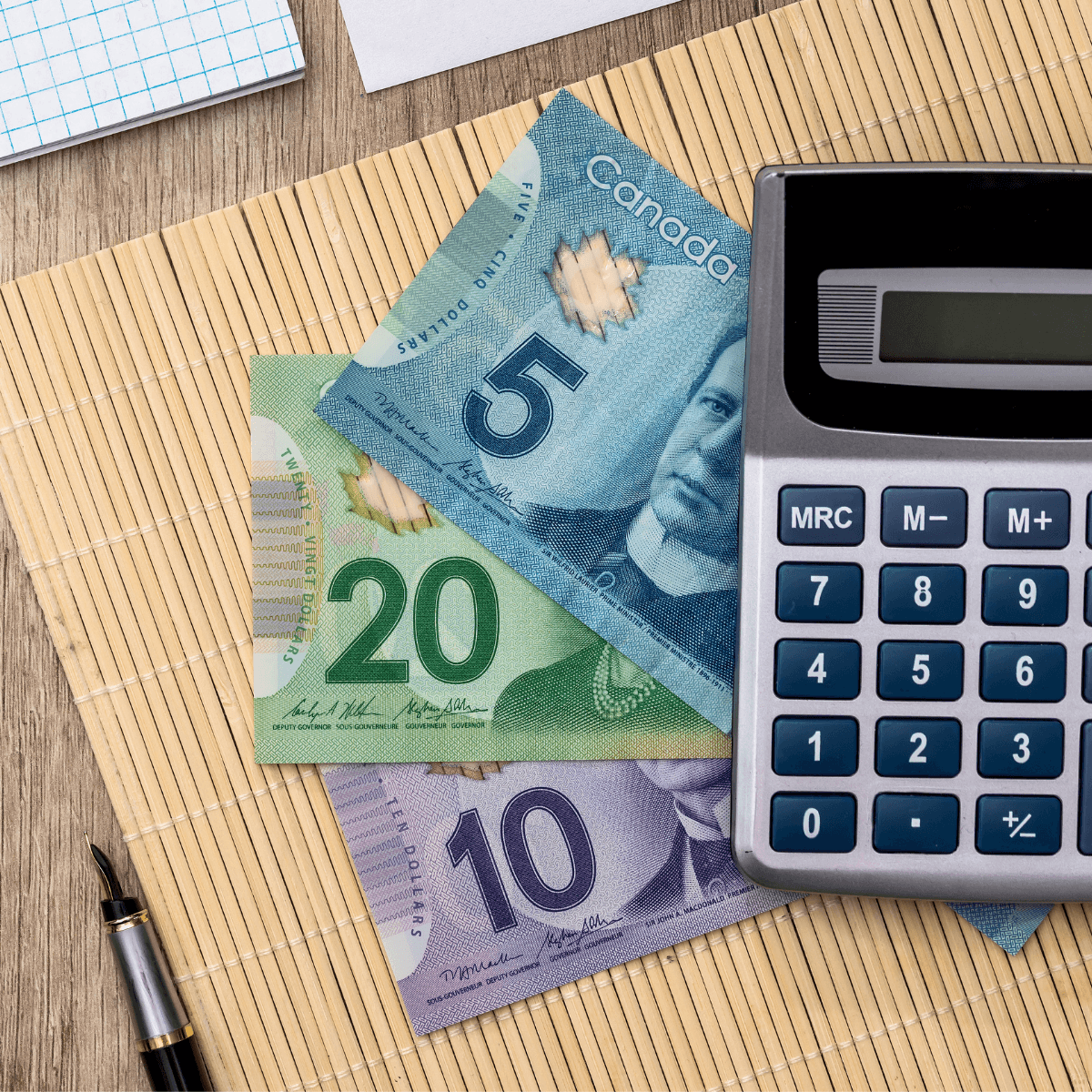If you need money to send your children to college or to renovate your home, then taking an equity loan might be the way for you to go.

Getting an equity loan is a great means to a large sum of money to meet your needs, but can you get an equity loan with bad credit?
The answer is YES. we will show you the steps that you can take to get an equity loan with bad credit.
While it is possible for you to get an equity loan with bad credit, it is good you know:
a. Many home equity lenders usually focus on the amount of equity that you have built up in your property.
b. Home equity loans are quite guaranteed because it gives lenders confidence that you have the resources to make payments.
It is good you know that all lenders will grant equity loans with bad credit. In fact, top banks in Canada have strict equity loan requirements which involve the following:
a minimum credit score of 620, anything below that
- a debt-to-income ratio no higher than 35%
- a history of making debt repayments on-time
- stable employment
- at least 15% equity in your home
Many Canadians find it difficult to meet up these requirements, they rather go to other flexible lenders. Even if you can get an equity loan from flexible lenders with bad credit, you need to know some things.
We are going to walk you through all you need to know to apply for an equity loan with bad credit.
How to apply for a bad credit home equity loan

If you are thinking of applying for an equity loan with bad credit from a bank, then you need to do the following:
Check your credit report
It is good that you check your credit report before your lender does. Canada’s credit reporting bureaus TransUnion and Equifax are required to give you one free credit report per year. With this report, you can see the exact information that your equity lender will be evaluating.
Asides from looking at your credit information, you can also point out and fix some inaccuracies on your credit. Seeing how your credit looks and fixing inadequacies in time will help you present cleaner credit history to your equity lender.
Evaluate your debt-to-income ratio

our debt-to-income ratio is one of the most important personal finance metrics that you should evaluate if you want to get an equity loan.
This personal financial metric describes the percentage of your monthly income that goes towards debt repayments.
For example, if you have a monthly income of $4000 and $2,000 goes into repaying your mortgage, or any other debts. This means that you have a debt-to-income ratio of 50%.
An equity lender considers this as too much. Usually, your debt-to-income ratio should not exceed 35%. We are sure you would love to know?
When your debt-to-income ratio is higher than 35%, maybe it is 50% or even 60%. With a high debt-to-income ratio, the lender will get the signal that any sudden financial emergency could possibly leave you unable to make repayment.
This is one risk that lenders do not want to take. They want to be sure you can make repayment at the right time.
If you have a higher debt-to-income ratio, you will need to work on decreasing it before applying for a home equity loan.
We understand that emergencies happen. If you need an equity loan to quickly respond to an emergency, then a flexible lender like goloans.ca.
Ensure you have enough equity
It is good to check and ensure you have enough equity before you apply for a home equity loan. The home equity is usually calculated by subtracting any amount that you are owing on your mortgage from the total value of your home.
For example, let us imagine that your home is worth $600, 000. If you have $100,000 remaining on your mortgage, this means you have $500,000 in available equity.
According to the Financial Consumer Agency of Canada, you are not allowed to borrow an amount that is more than 80% of your home value against it.
Based on the information that we shared earlier, you would be able to borrow the full $500, 000 in equity (even if you had no liens on the property).
It is good you know that some traditional home equity lenders require that you have at least 15% to 20% equity in your home.
This simply means that on a $600,000 home, you will need to have at least $90, 000 in equity to qualify for a loan.
Consider how much you need
When you are borrowing money, especially home equity loans. You might be tempted to borrow more than what you need because you want to have more in case something goes wrong.
Like we said earlier, most lenders allow you to borrow up to 80% of your home’s worth. If you take a look at the example that we gave earlier, you would notice that you would be to borrow up to $90, 000.
The fact that you can borrow up to $90, 000 does not mean that you should. It is good that you borrow only what you need. Taking more than what you need will only increase your monthly payments.
Compare interest rates
Your interest rate depends on many factors. One of the key factors is your credit score. Do you know that the lower your credit score, the higher your interest?
For example, if your credit score is between 620 and 639 you would pay an average interest rate of 10.88% for a 15-year fixed home equity loan of $50, 000
This is more than double the interest rate if you have a higher credit rating. According to FICO data. Someone with a poor credit score will pay almost $200 more each month for the same size loan.
Use a co-signer
If your credit is too poor for you to apply for an equity loan, then you can consider getting a co-signer to help you.
To make it clear, a co-signer applies for your loan equity loan with you. Base on documentation, your co-signer is responsible for paying back the loan as you are (whether or not they intend to make payments).
This means that if you fail in your repayment, their credit will suffer along with yours.
You need to be careful when applying for a loan with a co-signer. Make sure you state rules and expectations in place in case a situation occurs and you can’t make payments. Always stay open with your co-signer when anything comes up.
In case you have a history of falling behind on loan payments, then you may need to reconsider a co-signer. This can help you prevent relationship conflicts.
Consider improving your credit
Do you know that you can work on improving your credit to increase your chances of getting approved for an equity loan?
There are seemingly small things that you can do to improve your credit like:
a. check your credit report
Just like we said earlier, you can check your credit at least once a year. Checking your credit report allows you to know if there are errors like late payments and other issues.
b. Try to pay your monthly bills on time
Always try to pay your monthly bills on time. At least you can make the minimum payments, but always try to make the balance completely.
c. Don’t close credit cards after you pay them off
It is better you have a small recurring amount that you pay every month instead of closing your credit. Closing cards reduce your credit utilization ratio and it can also make your credit score to reduce.
d. Don’t open new credit cards
Opening a new credit card reduces your credit utilization ratio. This can cause your credit score to reduce.
e. Try to pay down existing credit card debt
Paying down your existing credit card debt allows you to stay below the 30% utilization rate.
Improving your credit is not something that happens overnight. It requires you to be disciplined and to also spend some time. We know these factors are expensive, but it is worth the price (your financial peace) at the end of the day.
Getting a home equity line of credit with bad credit

It may be challenging for you to get an equity loan with bad credit, but it is possible for you to get approved for a home equity line of credit with bad credit. You may have to pay higher interest because your credit score is low.
Before we go on to discuss the ways you can get a home equity line of credit with bad credit, it is good we tell what a home equity line of credit (HELOC) means.
What is a home equity line of credit (HELOC)

A HELOC is a line of credit that functions similarly to a credit card. With your home equity loan, your home is the collateral that helps you secure the loan.
A home equity line of credit is a kind of revolving credit in which your home serves as collateral. A home is usually used as collateral because it is often a customer’s most valuable asset.
Many homeowners use home equity lines only for major items like education, home renovation, etc. Many homeowners would not want to use their home equity for day-to-day expenses
With a home equity line, you will be approved for a specific amount of credit. Many lenders set the credit limit on a home equity line by taking a percentage of the home’s appraised value and subtracting it from the balance owed.
For example, if the value of your home is $100,000
Percentage x 75%
Percentage of appraised value = $ 75,000
Less balance owed on a mortgage – $ 40,000
Potential line of credit $ 35,000
How lenders see the home equity line of credit
In deciding your actual credit limit, lenders usually consider your ability to repay the loan (principal and interest) by looking at your income, debts, other financial obligations, and your credit history.
Many home equity line of credit plans set a fixed period during which you can borrow money (commonly 10 years). At the end of this draw period, you may be allowed to renew your equity line of credit.
What you should know about the home equity line of credit
Before you decide on opting for the home equity line of credit, ensure that you know the following:
a. the home equity line of credit plan does not allow renewals. This means that you would not be able to borrow additional money when your draw period has ended.
b. some plans call for full payment of the outstanding balance at the end of the period. While some others may allow repayment over a fixed period (the repayment period)
c. Once you are approved for a home equity line of credit, you will most likely be able to borrow up to your credit limit whenever you want.
d. In some home equity line credit, you can use a credit card or other means to draw on the line.
Some cons of a home equity line of credit with bad credit
We are to look at some risks that you would likely face if you decide to use the home equity line of credit. the risk of HELOC includes:
a. you would likely not secure the best interest rate.
b. This loan option can end up becoming more expensive in the long run.
c. This plan makes it harder for you to budget for repaying your loan since the interest rate varies. If the interest rate increases, it can increase your borrowing cost.
d. the risk of drawing too much money before the draw period expires.
e. The biggest disadvantage of a line of credit is the risk of losing your home if you are not able to meet up with the repayment.
Alternatives to a home equity line of credit if you have bad credit
Having bad credit may mean that you may not be able to get approval for an equity loan, but you can consider the following alternatives:
Personal loans
Personal loans usually have shorter repayment terms, usually up to five or seven years. This means that your monthly payments could be higher than with a home equity loan. Some lenders allow loans up to $100,000.
Some lenders allow loans smaller than $100, 000. You can research the lender that works best for you.
Since personal loans are not so secure, you would need a good credit score or a co-signer to qualify for the loan.
Cash-out refinance
If you are opting for a cash-out refinance plan, you will have to pay off your existing mortgage with a new and bigger loan. You will then receive the difference in cash.
Many lenders will require you to have at least 20% equity in your home for a cash-out refinance.
Summary
Getting a home equity loan with bad credit may not be easy, but it is absolutely possible. To improve your chances of approval, you should consider improving your credit score, paying off existing debt, etc. This can help to increase your total equity.
Once you have gotten these things sorted, you can do your research to discover lenders that are right for you.
If it is your first time, you can consider starting out with Goloans. The process is super fast, plus the requirement is not much of a big deal.
Do you have any questions? Let us know in the comment box below.





Your passion is evident in your writing, and it’s contagious!